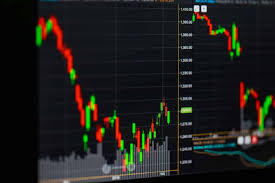
In recent years, the financial world has witnessed an extraordinary transformation, thanks in large part to technological advancements. Among these advancements, forex trading software development has emerged as a crucial component in the arena of currency trading. This domain is not only pivotal for traders but also for software developers who specialize in creating robust trading systems that cater to various user needs. Many professionals in this field are finding opportunities with companies like forex trading software developer Trading Vietnam, which enhances their reach and capabilities.
Forex trading, or foreign exchange trading, involves the exchange of one currency for another, and it operates on a global scale. It is one of the largest financial markets in the world, where trillions of dollars are traded daily across different currencies. With such a colossal volume of transactions, the significance of forex trading software has never been more pronounced. This software allows traders to execute their trades efficiently, analyze market trends, and manage risk, thereby facilitating better decision-making.
As a forex trading software developer, one must first understand the needs of traders. The software must be user-friendly, efficient, and capable of providing real-time market data. Developers must also ensure that the software can handle high volumes of trades without lags or bugs, as even a minor delay can result in significant financial losses for traders. This responsibility calls for a keen understanding of both trading mechanics and software design principles.
The Importance of User Experience in Forex Trading Software
User experience (UX) is critical in the realm of forex trading software. A well-designed interface can greatly influence a trader’s ability to navigate the platform effectively. Software developers must focus on creating intuitive dashboards, easily accessible functions, and responsive layouts. Users should be able to place trades, view charts, and analyze data seamlessly.
Furthermore, many forex trading platforms are now integrating advanced analytics tools and algorithms into their systems. These tools can analyze vast amounts of market data and assist traders in making informed decisions. However, if these tools are not integrated properly or if they overwhelm the user with complex information, they can have the opposite effect and hinder trading performance.
Technological Trends Influencing Forex Trading Software Development
Several technological trends are shaping the future of forex trading software development:
- Artificial Intelligence (AI) and Machine Learning: AI is being used to create intelligent trading systems that can analyze market patterns and execute trades on behalf of users. These systems can adapt and learn from new data, increasing their effectiveness over time.
- Blockchain Technology: As cryptocurrency gains traction, forex trading software developers are exploring how blockchain can enhance security and transparency within trading applications. Utilizing smart contracts, developers are working on automating transactions and improving settlement times.
- Cloud Computing: Cloud-based trading platforms allow for easier updates, ensure high uptime, and facilitate multi-device accessibility. Developers are increasingly leveraging cloud technologies to provide reliable and scalable solutions.
Collaboration Between Traders and Developers

The collaboration between traders and software developers is essential in creating effective forex trading solutions. Developers often conduct interviews and workshops with traders to understand their needs and pain points, allowing them to build software that truly serves the user’s requirements. This iterative process helps create a focused product that enhances trader efficiency and effectiveness.
Furthermore, maintaining an open feedback loop is vital. Once the software is deployed, ongoing communication with users allows developers to make necessary improvements and updates based on user experiences and suggestions. This aspect not only enhances user satisfaction but also builds a loyal customer base.
Challenges Faced by Forex Trading Software Developers
Despite the exciting opportunities in forex trading software development, several challenges persist:
- Market Volatility: Forex markets are notoriously volatile, which can lead to unforeseen issues in software performance. Developers must ensure their platforms can handle sudden market fluctuations without crashing.
- Regulatory Compliance: Forex trading is heavily regulated in many jurisdictions. Software developers must stay up-to-date with compliance requirements and ensure that their software adheres to all applicable laws and regulations.
- Security Concerns: With the increasing prevalence of cyber-attacks, developers are tasked with implementing strong security measures to protect sensitive user data and financial transactions.
Future Opportunities for Forex Trading Software Developers
Looking ahead, the demand for innovative forex trading software is expected to grow, driven by the need for more sophisticated trading tools and enhanced user experiences. Developers who are skilled in integrating new technologies, understanding trading dynamics, and prioritizing user experience will find ample opportunities in this evolving landscape.
Additionally, as more individuals seek to participate in forex trading, the need for educational resources and demo platforms will also increase. Developers can leverage these opportunities by creating software that not only facilitates trading but also educates users on best practices, market analysis, and trading strategies.
Conclusion
The role of forex trading software developers is more important than ever in today’s fast-paced financial environment. By understanding the complexities of trading alongside the intricacies of software development, these professionals are uniquely positioned to create tools that empower traders in their decision-making processes. With continuous advancements in technology and a commitment to user-centric design, the future of forex trading software development is bright, full of potential, and ripe with opportunities for innovation.
